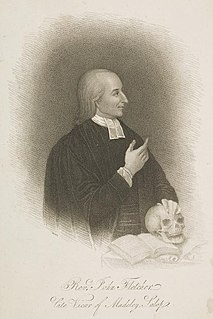A Quote by Abu Bakr
Piety is the most solid goodness, and the vilest of what is evil is vice.
Related Quotes
Goodness has no opposite. Most of us consider goodness as the opposite of the bad or evil and so throughout history in any culture goodness has been considered the other face of that which is brutal. So man has always struggled against evil in order to be good; but goodness can never come into being if there is any form of violence or struggle.
Keep your hands clean and pure from the infamous vice of corruption, a vice so infamous that it degrades even the other vices thatmay accompany it. Accept no present whatever; let your character in that respect be transparent and without the least speck, for as avarice is the vilest and dirtiest vice in private, corruption is so in public life.
Since the primary motive of the evil is disguise, one of the places evil people are most likely to be found is within the church. What better way to conceal one's evil from oneself, as well as from others, than to be a deacon or some other highly visible form of Christian within our culture? ... I do not mean to imply that the evil are anything other than a small minority among the religious or that the religious motives of most people are in any way spurious. I mean only that evil people tend to gravitate toward piety for the disguise and concealment it can offer them.
Idleness is the grand Pacific Ocean of life, and in that stagnant abyss the most salutary things produce no good, the most noxious no evil. Vice, indeed, abstractedly considered, may be, and often is engendered in idleness; but the moment it becomes efficiently vice, it must quit its cradle and cease to be idle.
Goodness was more difficult than evil. Evil men knew that more than good men. That's why they became evil. That's why it stuck with them. Evil was for those who could never reach the truth. It was a mask for stupidity and lack of love. Even if people laughed at the notion of goodness, if they found it sentimental, or nostalgic, it didn't matter -- it was none of those things, he said, and it had to be fought for.
Evil is thus a kind of parasite on goodness. If there were no good by which to measure things, evil could not exist. Men sometimes forget this, and say, there is so much evil in the world that there cannot be a God. They are forgetting that, if there were no God, they would have no way of distinguishing evil from goodness. The very concept of evil admits and recognizes a Standard, a Whole, a Rule, an Order. Nobody would say that his automobile was out of order if he did not have a conception of how an automobile ought to run.
On the whole, men are more good than bad; that, however, isn't the real point. But they are more or less ignorant, and it is this that we call vice or virtue; the most incorrigible vice being that of an ignorance that fancies it knows everything and therefore claims for itself the right to kill. The soul of the murderer is blind; and there can be no true goodness nor true love without the utmost clear-sightedness.









































